×
Filter Results
Filter Results

Research
This publication identifies Chinese nationals serving in leadership positions in key international organizations (see full list below). Top leadership positions are broadly defined as positions at the board of directors and senior management team level.
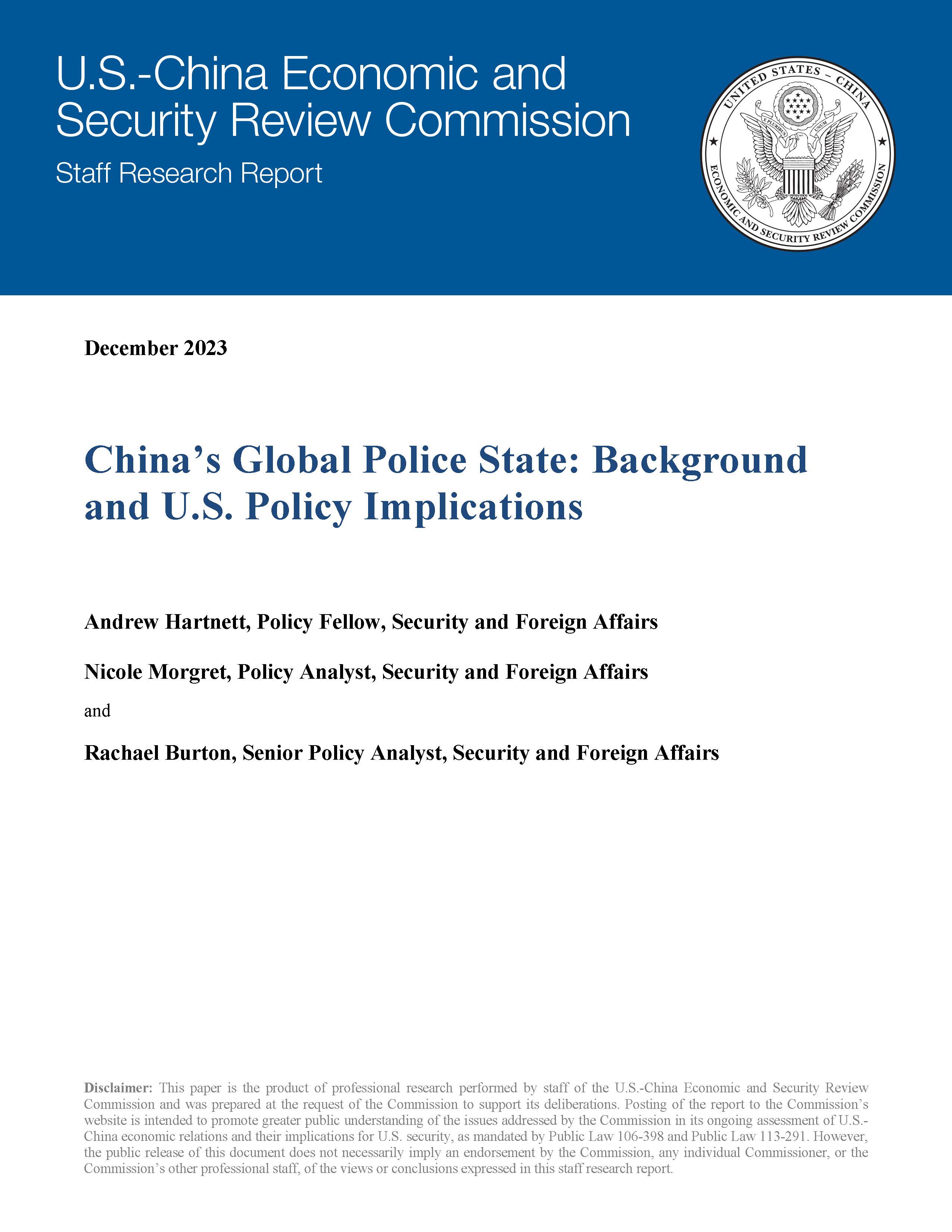
Staff Paper
This staff research report details China’s evolving and expanding transnational repression “toolkit.” This toolkit includes “overseas police stations,” intelligence operations targeting Beijing’s critics in foreign countries, efforts to undermine free speech at universities, online harassment, coercion-by-proxy, and abuse of the INTERPOL red notice system, as well as extradition treaties.
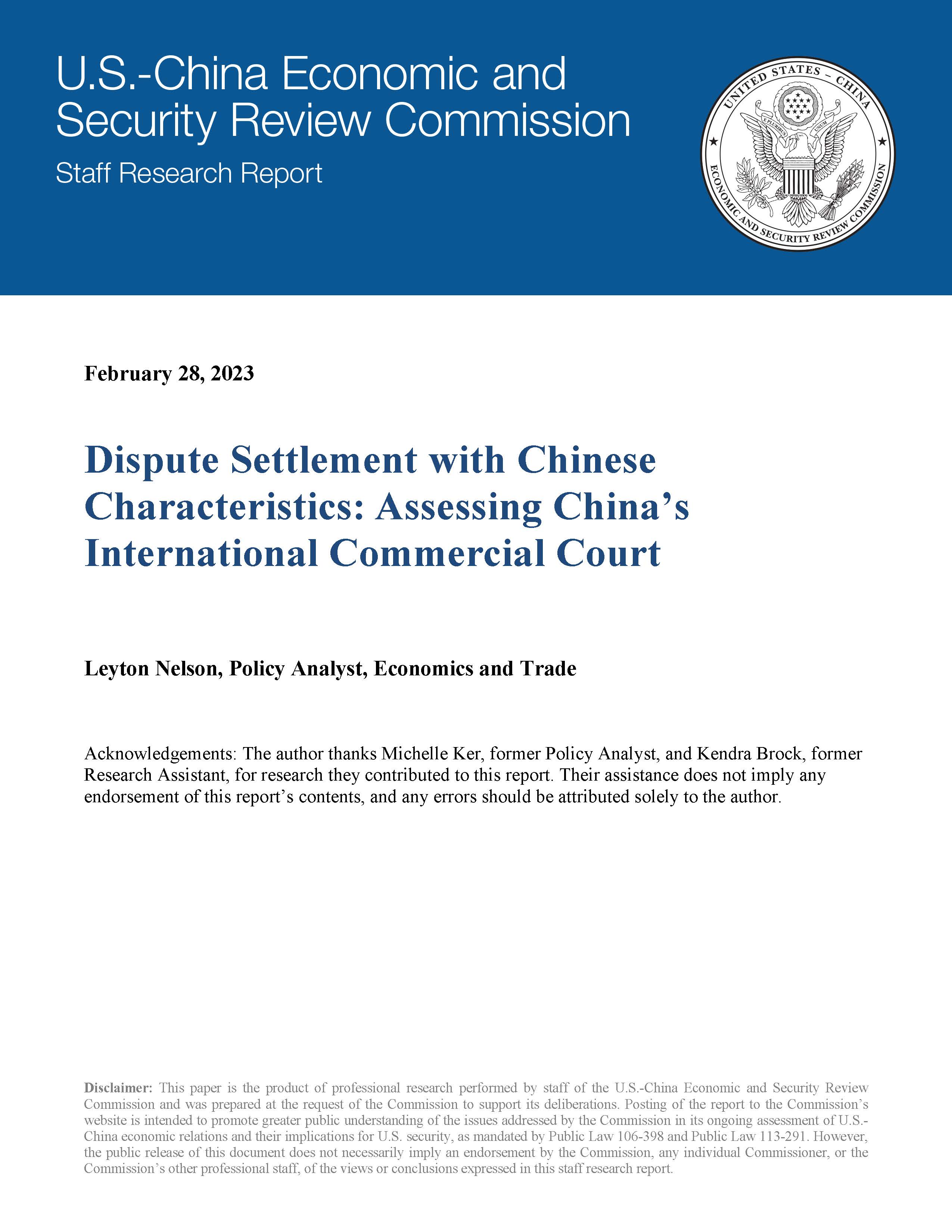
Staff Paper
This staff research report explores the “one-stop shop” dispute resolution center for Belt and Road Initiative (BRI)-related commercial disputes. The report concludes with implications for the United States.
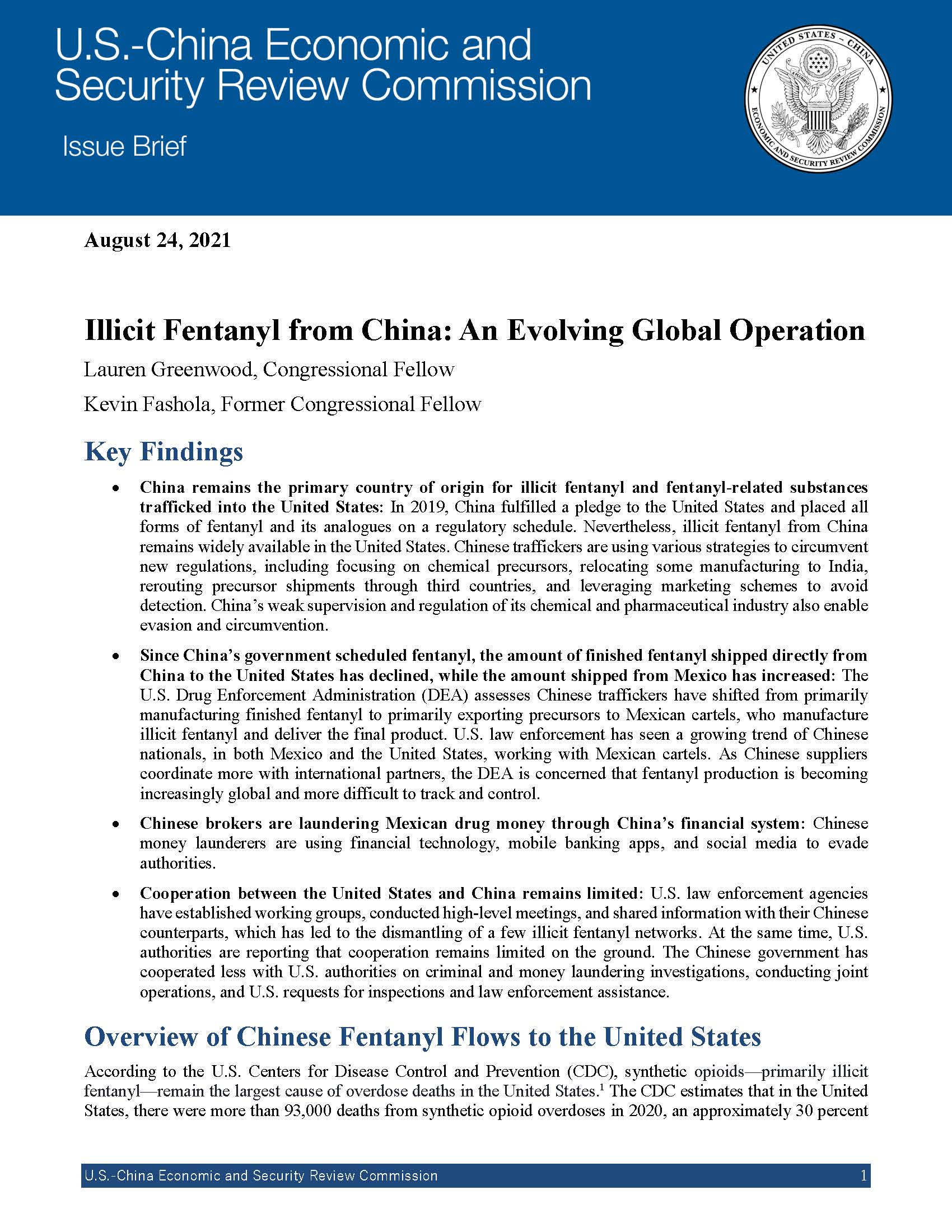
Issue Brief
The issue brief examines the evolution of China’s role in global illicit fentanyl trade.
Staff Paper
China is the largest market for trafficked wildlife products. Its demand has been an important factor leading to declines in iconic species such as elephants and big cats, as well as in lesser-known species like pangolins. Although China’s legal regime establishes protections for many endangered species, loopholes regarding captive breeding and antitrafficking enforcement create opportunities for the illicit wildlife trade to flourish. Success in combating this trade varies by species: regarding the trade in elephant ivory, for example, a confluence of domestic and international pressure culminated in a U.S.-China joint ivory ban, completed in early 2018. Though indications following the ban appear promising, China’s recent partial reversal of its ban on the use of rhino horn and tiger bone highlights continuing shortcomings in its effort to combat wildlife trafficking.
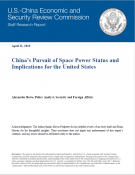
Staff Paper
As space becomes more “congested, contested, and competitive,” as termed in the 2011 U.S. National Security Space Strategy, efforts by spacefaring nations to establish norms of behavior in space have become increasingly important. This issue brief examines China’s views on the Code of Conduct for Outer Space Activities proposed by the European Union, finding that Beijing instead continues to support a binding treaty that would ban the deployment of weapons in space, which it has jointly proposed with Russia. This treaty would significantly limit U.S. activities in space while doing little to reduce actual threats to space assets. China’s actions in regards to codes of conduct in other areas indicate it sometimes uses negotiations to prolong the status quo, and does not always adhere to its agreements. Should China continue to place a high value on developing military counterspace capabilities, its position should be expected to remain unchanged.

Research
USCC Staff have compiled a table of World Trade Organization (WTO) cases brought by the United States against China from data provided by the WTO.
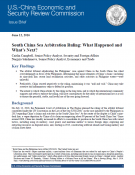
Issue Brief
On July 12, 2016, the arbitral tribunal adjudicating the Philippines’ case against China in the South China Sea ruled overwhelmingly in favor of the Philippines, determining that major elements of China’s claim—including its nine-dash line, recent land reclamation activities, and other activities in Philippine waters—were unlawful. Predictably, China reacted negatively to the ruling, maintaining it was “null and void.” China may take assertive and inflammatory steps to defend its position. The extent to which China abides by the ruling in the long term, and to which the international community supports and seeks to enforce the ruling, will have consequences for the utility of international law as a tool to ensure the peaceful, stable, and lawful use of the seas going forward.
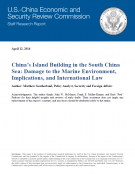
Staff Paper
From December 2013 to October 2015, China built artificial islands with a total area of close to 3,000 acres on seven coral reefs it occupies in the Spratly Islands in the southern part of the South China Sea. Although dredging, land reclamation, and the building of artificial islands are not unique to China, the scale and speed of China’s activities, the biodiversity of the area, and the significance of the Spratly Islands to the ecology of the region make China’s actions of particular concern. In addition to damage to the reefs, China’s island building activities have negatively impacted fisheries in the immediate area of the reclamation sites, and could negatively impact the health of fisheries in the coastal areas of the South China Sea. The building of these artificial islands will almost certainly lead to increased Chinese fishing in the surrounding waters, which could raise the risk of a clash between Chinese fishing boats and those of other claimant countries. Moreover, China’s island building activities may have violated some of its environmental commitments under international law; the ongoing case initiated by the Philippines at the Permanent Court of Arbitration in The Hague regarding China’s claims and activities in the South China Sea is considering this possibility.
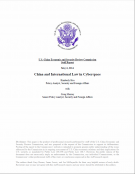
Staff Paper
Despite major differences on cyberspace policy between the United States and China, a recent development at the United Nations illustrates basic areas of agreement. The United States and China were among 15 countries affirming the applicability of international law to cyberspace in a 2013 UN report. The same group will gather in 2014 to address some of the more challenging and divisive concepts regarding state responsibility and use of force in cyberspace. Any fractures in the debate at this meeting will likely reflect some of the major differences between the United States and China on cyberspace policy.
